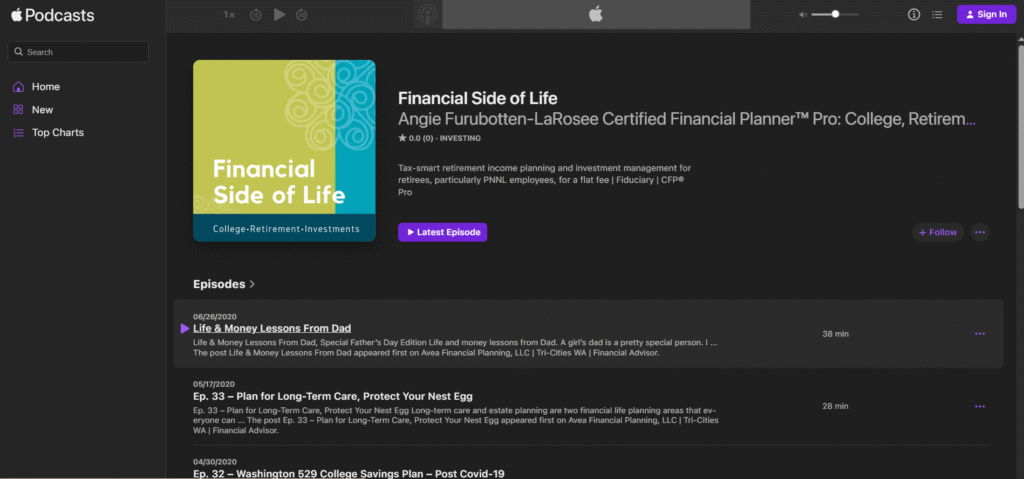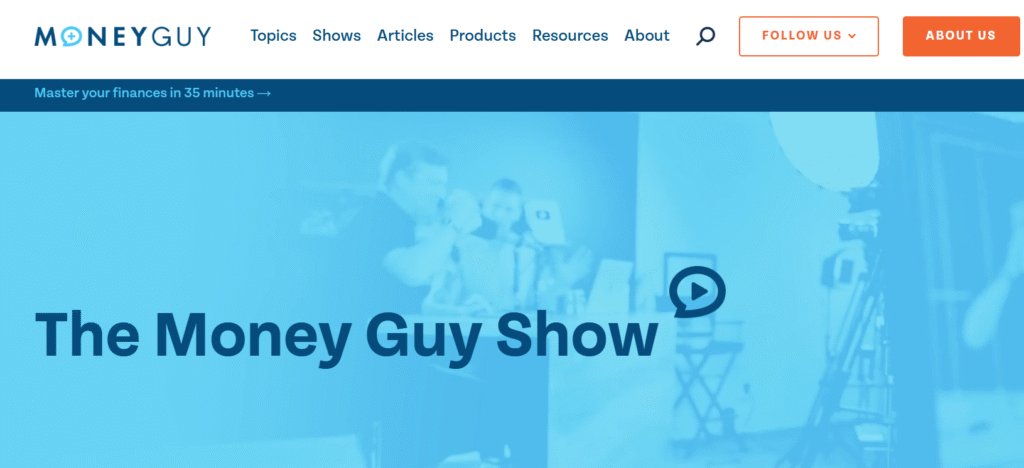10 Best Personal Finance Podcasts You Should Listen To ASAP

Look, I’ll be straight with you, your money problems probably aren’t going away just because you downloaded another budgeting app. I’ve been there, staring at my bank account like it’s somehow going to magically refill itself. But here’s what actually worked for me: listening to people who’ve already figured this stuff out.
Personal finance podcasts changed my entire relationship with money. Not overnight (nothing good ever happens overnight, despite what those sketchy Instagram ads promise), but gradually. These shows became my financial education when I was too broke to hire a fancy advisor and too stubborn to keep making the same mistakes.
Whether you’re drowning in student loans, clueless about retirement, or just want to stop feeling anxious every time you check your balance, these podcasts will actually help. No fluff, no BS, just real strategies from people who know their stuff.
What Are Some Good Podcasts About Personal Finance?
Here’s the thing: not all financial podcasts are created equal. Some are basically just sales pitches disguised as advice (you know the ones I’m talking about). The truly valuable podcasts focus on the fundamentals that actually matter.
A great personal finance podcast should teach you how to:
- Build emergency savings without feeling deprived
- Knock out debt systematically (not just throw money at it randomly)
- Create multiple income streams
- Invest without losing sleep over market crashes
- Build actual, sustainable wealth
If a podcast spends more time selling courses than giving actionable advice, run. Your time is valuable, and you deserve content that respects that.
The best hosts break down complex financial concepts into digestible chunks. They use real examples, admit their own mistakes, and don’t pretend that wealth-building is some mysterious secret only they possess. Honestly, that’s refreshing in an industry full of “gurus” who’ve never actually struggled with money.
Where Can I Find Personal Finance Podcasts?

This one’s easy, you’ve got options everywhere. Apple Podcasts remains the gold standard for podcast listening. The interface is clean, episodes download automatically, and you can speed up playback when hosts get a bit too chatty (which happens more than you’d think).
Google Podcasts works seamlessly if you’re an Android user. It syncs across devices, which means you can start an episode during your commute and finish it later without losing your place.
Spotify has massively invested in podcasts lately. If you’re already using it for music, why not consolidate? Plus, their algorithm actually suggests decent financial podcasts based on what you’ve already listened to.
Amazon Music is another solid option, especially if you’re already paying for Prime. The selection keeps growing, and the audio quality is consistently good.
FYI, most podcasts are free, which is perfect when you’re trying to learn about money without spending money. The irony isn’t lost on me 🙂
Benefits Of Watching Personal Finance Podcasts
Let me tell you something I wish someone had told me years ago: financial education is an investment that pays dividends forever. Unlike that gym membership you’re still paying for but never use, time spent on financial podcasts actually compounds.
Here’s what regular listening does for you:
Better Spending Habits
You know that feeling when you buy something and immediately regret it? Yeah, podcasts help fix that. When you’re constantly hearing about intentional spending, delayed gratification, and the difference between needs and wants, it starts rewiring your brain.
I used to drop $200 at Target for “just a few things.” Now? I actually pause before purchases. Not because I’m cheap (I prefer “financially aware”), but because I’ve heard enough stories about people who regretted their spending patterns.
These shows introduce practical strategies like the 24-hour rule, zero-based budgeting, and envelope systems. More importantly, they explain why frugality isn’t about deprivation, it’s about prioritising what truly matters to you.
Wise Investment
Here’s something they don’t teach you in school: investing isn’t gambling if you know what you’re doing. The problem is that most people don’t know what they’re doing, so they either avoid investing entirely or make impulsive decisions based on hot tips from their cousin’s friend’s brother.
Financial podcasts demystify investing. They break down concepts like compound interest, diversification, index funds, and risk tolerance in ways that actually make sense. You’ll learn the difference between investing for growth versus income, understand why timing the market usually backfires, and discover how dollar-cost averaging protects you from your own panic.
When I first started investing, I had no clue what I was doing. Listening to experts explain their strategies and their mistakes gave me the confidence to start small. Now, my portfolio actually exists instead of being this scary theoretical thing I kept putting off.
Debt Prevention
Americans collectively owe over $1 trillion in credit card debt. Let that sink in. The average household carries around $7,000 in revolving debt, paying interest rates that would make a loan shark blush.
Debt prevention strategies you’ll learn:
- How to use credit cards responsibly (they’re tools, not free money)
- The psychology behind overspending
- Building an emergency fund before debt wipes you out
- Distinguishing between productive debt and destructive debt
Podcasts approach debt from multiple angles: the math, the psychology, and the practical strategies. They interview people who’ve paid off six figures in debt while earning average salaries. These aren’t fairy tales; they’re blueprints you can follow.
Retirement Planning
Real talk: you cannot afford to ignore retirement planning. I don’t care if you’re 22 and retirement feels like science fiction. Time is your biggest asset, and squandering it because retirement feels too far away is a mistake you’ll deeply regret.
Financial podcasts make retirement planning less overwhelming. They explain:
- How much do you actually need to retire comfortably
- The power of starting early (even with small amounts)
- 401(k)s, IRAs, Roth conversions, and all that alphabet soup
- Catch-up strategies if you started late
One podcast I listened to featured a 28-year-old who started saving just $200 monthly. By age 65, assuming average market returns, that becomes over $600,000. That’s not magic, that’s compound interest doing its thing. Missing out on that because you bought more stuff, you forgot about six months later? That’s painful to think about.
Financial Literacy
Financial literacy is power, plain and simple. It’s understanding how money works so you’re not constantly stressed about it. Knowing your options when life throws curveballs. It’s being able to spot scams, negotiate better, and make decisions that align with your actual goals.
Most of us graduated without learning anything useful about money. We can analyse Shakespeare, but can’t explain how a mortgage works. Podcasts fill that educational void.
They cover everything: taxes, insurance, estate planning, side hustles, salary negotiation, and more. You’re essentially getting a financial education for free while folding laundry or commuting. That’s efficient.
10 Best Financial Podcasts To Get Your Finances Together
Alright, enough theory, let’s get to the good stuff. These are the podcasts that have genuinely helped me and thousands of others get their financial lives together.
1. 15-Minute Financial Advisor

Host: Mike Policar
Sometimes you don’t have an hour to devote to financial education. That’s the beauty of this podcast: episodes clock in at 15 minutes or less, making it perfect for short commutes or coffee breaks.
Mike focuses heavily on investment tactics and savings strategies. He explains complex topics like stock options, different savings account types, and market allocation without making your eyes glaze over. Each episode provides solid background information before diving into specifics.
Sure, Mike runs this partially to attract clients for his advisory business. But here’s the thing: he still delivers genuine value in every episode. He’s not hiding the good stuff behind a paywall. If you’re just starting your investment journey and feel intimidated by all the jargon, this podcast breaks it down beautifully.
What makes it great:
- Short, focused episodes that respect your time
- Clear explanations of investment fundamentals
- Practical takeaways you can implement immediately
- Perfect for beginners who feel overwhelmed
Listen to 15-Minute Financial Advisor here.
2. The Common Sense Financial Podcast
Host: Brian Skrobonja
If retirement planning terrifies you (and honestly, it should terrify you a little, that’s healthy fear), Brian Skrobonja’s podcast is your new best friend. As a financial advisor and owner of Skrobonja Financial Group, Brian specialises in helping people retire successfully.
What I love about Brian’s approach is how practical and story-driven it is. He doesn’t just throw numbers at you. He shares real cases (anonymised, obviously) of people who navigated retirement successfully or learned from mistakes. These stories stick with you way better than abstract advice.
Beyond retirement, Brian covers wealth-building strategies, generational planning, and estate planning. He brings on social security experts who explain the system in ways that don’t make you want to cry. IMO, understanding social security optimisation alone makes this podcast worth your time.
Key topics covered:
- Retirement income planning
- Social security maximisation
- Wealth accumulation strategies
- Estate and legacy planning
- Real-life case studies
Listen to The Common Sense Financial Podcast here.
3. Financial Residency
Host: Ryan Inman
Ryan Inman created this podcast specifically for physicians and their families, but don’t let that narrow focus fool you; the principles apply to anyone with high income and high stress. As the founder of Physician Wealth Services, Ryan understands the unique financial challenges facing high earners.
What sets this podcast apart is the detailed episode outlines Ryan provides before each show. You know exactly what you’re getting into, which means no wasted time on topics that don’t apply to you. He covers comprehensive financial planning from multiple angles.
Physicians face particular challenges: massive student loan debt, delayed income, complex tax situations, and malpractice concerns. But the strategies Ryan discusses, aggressive debt payoff, tax optimisation, asset protection, and efficient investing, translate beautifully to other high earners.
Even if you’re not a doctor, you’ll find value in episodes about tax-efficient investing, backdoor Roth conversions, and building wealth while juggling family obligations.
Why it’s valuable:
- Detailed episode outlines save time
- Comprehensive financial planning coverage
- Advanced strategies for high earners
- Expert interviews with specialists
Listen to Financial Residency here.
4. Financial Side Of Life: College, Retirement, And Life

Host: Angie LaRosee
Here’s a nightmare scenario: trying to save for retirement while simultaneously funding your kid’s college education. It feels impossible, right? That’s exactly what Angie LaRosee tackles in this podcast.
As a financial planner at Avea Financial Planning, Angie specialises in helping Generation X and Millennials navigate this dual challenge. Student loan debt is crushing an entire generation, and parents want better for their kids, but not at the expense of their own retirement security.
Angie interviews professionals who understand these pressures. She breaks down strategies like 529 plans, understanding financial aid, deciding between retirement savings and college savings, and helping kids graduate with minimal debt. The podcast addresses the emotional side of money, too, the guilt parents feel, the pressure kids experience, and finding balance.
One episode that stuck with me featured a family that fully funded their retirement accounts before contributing to college funds. It sounds counterintuitive, but the math makes sense: kids can get loans for college; you can’t get loans for retirement.
Core focus areas:
- Balancing college and retirement savings
- Student loan payoff strategies
- Financial aid optimisation
- Generational financial planning
Listen to the Financial Side of Life here.
5. Stay Wealthy
Host: Taylor Schulte
Building wealth is hard. Keeping wealth? That’s somehow even harder. Taylor Schulte’s “Stay Wealthy” podcast addresses both sides of this equation through compelling storytelling and real-life examples.
Taylor doesn’t just recite theory; he tells stories. Stories of people who built seven-figure net worths from nothing. Stories of retirees who maintained their lifestyle through multiple recessions. Narration that proves sustainable wealth isn’t about luck or inheritance; it’s about consistent, smart decisions.
One thing I particularly appreciate: Taylor focuses on getting out of debt before retirement. Too many people think they’ll “deal with it later”, only to discover that retirement with debt is stressful and expensive. His strategies for becoming debt-free while building retirement savings simultaneously are game-changers.
What you’ll learn:
- Wealth preservation during economic downturns
- Debt elimination before retirement
- Real-life wealth-building stories
- Strategic financial planning
Listen to Stay Wealthy here.
6. The Money Guy Show

Hosts: Brian Preston and Bo Hanson
This podcast has been around for over a decade, which in podcast years is basically forever. Brian Preston started it after realising how many people were completely clueless about managing money (no judgment; most of us are).
Brian and Bo’s chemistry makes complex topics enjoyable. They debate strategies, challenge each other’s assumptions, and break down financial concepts through entertaining dialogue. It’s like listening to two knowledgeable friends discuss money over coffee, except these friends have decades of combined financial planning experience.
Topics range from basic budgeting to advanced investment strategies. They answer listener questions, dissect current economic events, and provide frameworks for making better financial decisions. The show runs longer than some others on this list, but the depth of information justifies the time investment.
Episode highlights:
- Effective money management techniques
- Investment strategy discussions
- Financial independence planning
- Current economic analysis
Listen to The Money Guy Show here.
7. The Legacy And Lifestyle Show
Host: George Acheampong
George Acheampong brings a unique perspective as a financial advisor in North Carolina who’s passionate about transforming money mindsets. His podcast isn’t just about tactics; it’s about fundamentally changing how you think about wealth.
What I find valuable is George’s focus on possibilities rather than limitations. Too many financial shows focus on what you can’t do, what you can’t afford, and how far behind you are. George flips that script, showing listeners what’s actually achievable with the right strategies and mindset.
He interviews business owners, fellow financial advisors, and everyday people who’ve achieved financial success. Episodes cover wealth-building, entrepreneurship, and achieving financial goals before retirement. The energy is motivating without being unrealistic.
Key themes:
- Money mindset transformation
- Wealth-building strategies
- Entrepreneurship and business growth
- Pre-retirement goal achievement
Listen to The Legacy And Lifestyle Show here.
8. Jake Of All Trades
Host: Jake Rivas
Jake Rivas gets it because he lived it. He was drowning in student loan debt like millions of other Millennials, wondering if he’d ever be financially stable. Then he figured out a way to aggressively pay it off, and now he helps other young people do the same.
This podcast is specifically geared toward Millennials dealing with student loans, but the debt payoff strategies apply universally. Jake interviews personal finance experts and includes a segment called “Fact or Fiction” that debunks common money myths.
That “Fact or Fiction” segment is gold. For example, the myth that consolidating student loans lowers your interest rate? Fiction. Understanding what’s real versus what’s marketing BS can save you thousands of dollars and years of unnecessary stress.
Jake’s personal story adds authenticity. He’s not some trust fund kid preaching about financial discipline. He’s someone who actually fought his way out of debt and wants to help others do the same.
Why Millennials love it:
- Relatable host who understands the struggle
- Student loan payoff strategies
- Myth-busting segment
- Expert interviews
Listen to Jake Of All Trades here.
9. Invest Talk With Steve Peasley And Justin Klein
Hosts: Steve Peasley and Justin Klein
This podcast started as a radio show back in 1999, which means it’s been delivering financial advice since before podcasting was even a thing. That longevity speaks volumes about its quality.
Based in Southern California, “Invest Talk” has built a massive following by focusing on investment education. Steve and Justin rarely host together (Klein takes Mondays, Peasley handles other weekdays), but both bring deep expertise to their episodes.
The podcast primarily teaches smart investing strategies backed by real-world examples. They discuss market trendsanalyseze different investment vehicles, and help listeners understand where to put their money for optimal growth. This isn’t get-rich-quick nonsense; it’s practical, long-term investment education.
Investment focus areas:
- Stock market analysis
- Portfolio diversification strategies
- Investment vehicle comparisons
- Market trend interpretation
Listen to Invest Talk With Steve Peasley and Justin Klein here.
10. Inspired Money With Andrew Wang
Host: Andrew Wang
Andrew Wang’s “Inspired Money” takes a different approach. Instead of chasing listener numbers, Andrew focuses on quality over quantity, delivering deeply valuable content through inspiring stories.
As an investment advisor, Andrew excels at finding people with incredible financial stories and extracting the lessons everyone can apply. One episode featured a couple who paid off a $300,000 mortgage in just five years on one salary. Not two incomes, one. Reading that probably made you sceptical (I certainly was), but the episode breaks down exactly how they did it.
These aren’t theoretical strategies or pie-in-the-sky dreams. They’re documented, replicable approaches that real people used to achieve extraordinary financial results. Andrew also covers investment strategies, money management techniques, and solving life problems through financial awareness.
What sets it apart:
- Inspiring real-life success stories
- Detailed strategy breakdowns
- Investment guidance
- Problem-solving through financial planning
Listen to Inspired Money here.
Final Thoughts
Financial knowledge won’t magically appear; you have to go after it. Podcasts make that easy by turning your commutes, workouts, and chores into quick financial lessons. They help you learn without changing your routine.
The shows here have helped millions master money, from budgeting and debt to investing and wealth-building. Whatever your challenge, there’s a podcast that speaks directly to it. Start with one that fits your vibe and commit to listening regularly.
You don’t need hours or expensive courses, just consistency. Open your favourite podcast app, subscribe, and let the learning happen in the background. Your future financially confident self will thank you for it.








